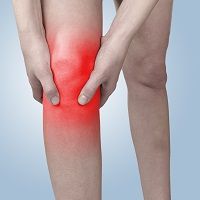Beware: Gout Peaks in November
In the midst of planning Thanksgiving dinner and watching the best NFL matchups, the last thing patients want to think about is an inconvenient gout flare-up. Unfortunately, it looks like November is prime-time for the debilitating condition.

In the midst of planning Thanksgiving dinner and watching the best NFL matchups, the last thing patients want to think about is an inconvenient gout flare-up. Unfortunately, it looks like November is prime-time for the debilitating condition.
Sure, gout flare ups can happen at any time. It wasn’t too long ago that evidence backed the long suspected association between tomatoes and gout attacks. But it turns out that these flare-ups are more prominent as the weather begins to get cooler.
Researchers from Reading Health System reviewed 28,172 hospitalizations between 2009 and 2011. The Nationwide Inpatient Sample (NIS) sample database included people ages 18 and older with a primary diagnosis of acute gouty arthritis.
“We used the Edwards recognition and estimation of cyclic trend method to study the seasonal variation of the incidence of acute gout and z-test to compare the seasonal incidences,” the authors wrote in Clinical Rheumatology.
The most hospitalizations were observed in the autumn months (28.12), specifically November with a peak/low ratio of 1.34. The lowest number of hospitalizations occurred in the spring (23.13). The obvious question here is, why? Well, that answer may be a little more complicated. The team didn’t pinpoint an exact reason why this is, however, the findings give insight to gout’s pathophysiology and can help better prepare physicians and patients for future attacks.
This isn’t the first time that a study has aimed to find the relationship between gouty arthritis and the weather. A Treatise on Gout by Dyce Duckworth said that it is “commonly believed” that autumn and spring are actually the seasons when gout flare-ups are actually the most frequent. The author says that this “is probably attributable to the climatic peculiarities prevalent at those seasons.”
Although research has some conflicting points, it seems like there’s a common theme: extreme weather is not good for gout. Whether the temperatures are dipping into freezing territory or scorching somewhere at the top of the thermometer, neither get a thumbs up from patients.
What to Read Next >>> Sleep Apnea Appears to Increase the Risk of Developing Gout